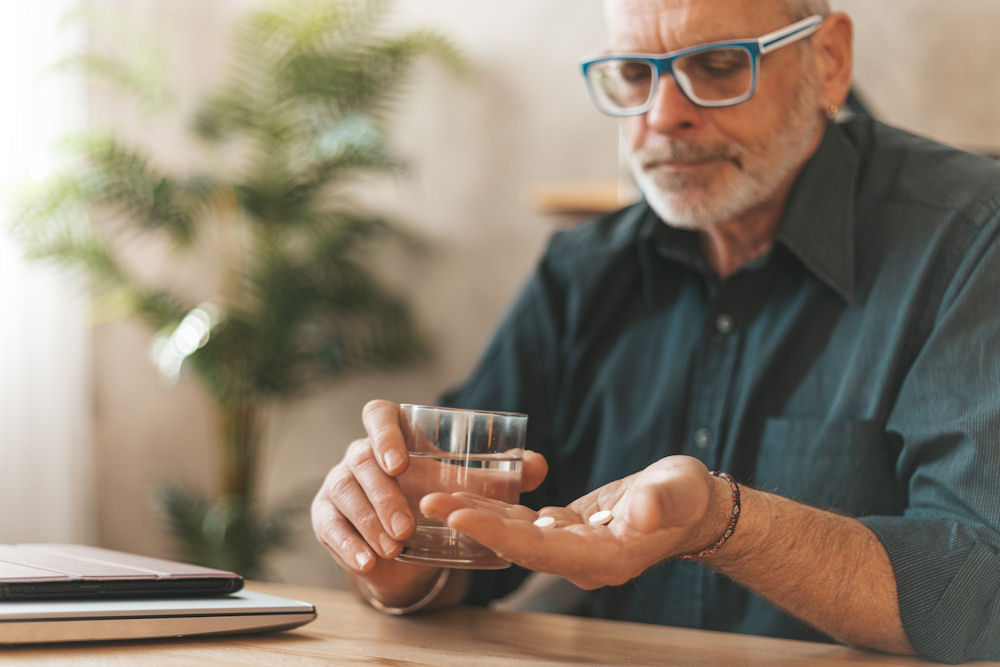
Can you drink alcohol while taking antibiotics? It is a prevalent misunderstanding that consuming alcohol while taking antibiotics is a safe practice, despite the warnings prominently displayed on most antibiotic packaging. A common inquiry posed to healthcare professionals is whether it is permissible to drink alcohol during antibiotic treatment. The concise response is negative; alcohol can significantly diminish the efficacy of antibiotics and may also lead to a variety of adverse side effects.
When alcohol is metabolized in the body, it generates acetaldehyde, a compound that can induce nausea. Many individuals on antibiotics already suffer from gastrointestinal disturbances, and the addition of alcohol can exacerbate these feelings of nausea. Furthermore, both alcohol and antibiotics can impair cognitive abilities, focus, and motor coordination.
Additionally, it is important to recognize that alcohol consumption disrupts vital bodily functions such as sleep and hydration, both of which are essential for recovery from bacterial infections. Given these considerations, it is advisable to refrain from alcohol consumption throughout antibiotic therapy. It is worth noting that some individuals may struggle to abstain, potentially leading to dependency and addiction. Laguna Shores Recovery in Dana Point, California specializes in treating individuals struggling with alcohol addiction and drug abuse.
What Are Antibiotics?
Antibiotics, commonly referred to as antibacterial agents, are potent medications designed to eliminate or inhibit the growth of bacteria. These drugs are ineffective against viral infections, such as the common cold or influenza, and are specifically targeted at bacterial diseases. Antibiotics function by either eradicating the invading bacteria or preventing their reproduction.
Although the body’s white blood cells typically combat harmful bacteria and resolve infections independently, there are instances when the bacterial load is too high, necessitating the use of antibiotics to assist in the healing process. A variety of antibiotics are available to address numerous medical conditions, including:
- Strep throat
- Bacterial pneumonia
- Urinary tract infections
- Sexually transmitted infections
- Ear infections
- Skin infections, including acne
- Sepsis
When used according to medical guidance, most antibiotics are considered safe; however, they may also present a risk of side effects, such as upset stomach, nausea, and diarrhea. These side effects can be exacerbated by alcohol consumption, potentially leading to additional complications, including vomiting, dizziness, drowsiness, headaches, and in severe cases, life-threatening seizures.
People combine a variety of antibiotics with casual drinking all the time with the approval of their doctors. Take into account that just because many drink with the following antibiotics, does not mean it’s ok to disregard consulting a medical expert. As mentioned, your body may have adverse reactions that others don’t when combining alcohol with certain medications. The following provides a list of the most common antibiotics mixed with alcohol.
Tetracyclines are prescription drugs used to treat acne or even common respiratory infections. This medication is mostly safe to take in conjunction with moderate drinking. Most people will not experience any harmful side effects when combined with drinking, except in cases of rare allergic reactions. This is confirmed by several recent studies conducted on how Tetracyclines interact with alcohol in the bloodstream.
Oxazolidinone is a potent antibiotic that is utilized for severe respiratory or skin infections such as pneumonia or endocarditis. Because of its potency, there are only very specific types of alcohol that are safe to ingest while using this drug. Oxazolidinones specifically don’t counteract well with tyramine, a common chemical found in many preservatives and bottled beers and taps. Therefore, with this antibiotic, only alcohols that have low tyramine levels are safe to consume in strict temperance.
Fluoroquinolones treat a wide variety of bacterial infections like STDs, and respiratory, urinary, and joint infections. This prescription, though commonly used in conjunction with drinking, is safe under very specific circumstances. Many have reported notable side effects ranging from moderate to severe, depending on how your body reacts to the medication. Since these body reactions widely vary on a case-by-case basis, you must confer with your doctor before drinking. Even if approved, minimal drinking is highly advised to prevent serious side effects.
One of the most common treatments for several bacterial infections is also commonly used in conjunction with drinking. Drinking in coordination with penicillin medication is very unlikely to have any negative side effects. However, alcohol does slow the metabolic process, causing it to slow the progression of penicillin’s effectiveness for its intended use. Be aware of this fact as it may take you longer to overcome your viral infections if you plan on consuming alcohol with penicillin.
This antibiotic is commonly used in conjunction with additional antibiotics for several infections. Alcohol consumption is very safe while taking sulfonamide. However, considering sulfonamide is predominantly second fiddle to a primary antibiotic being used simultaneously, sulfonamide is not the one to be concerned about. It’s the primary drug being used in conjunction with this antibiotic that you need to consult a doctor for about alcohol use safety.
Can You Drink Alcohol While Taking Antibiotics?
Can you drink alcohol while taking antibiotics? If you’re wondering this, you’re not alone. For the most part, drinking alcohol in strict moderation is safe when combined with most antibiotics. However, some antibiotics strictly require no alcohol or additional drug consumption because of adverse reactions. Make sure you always consult with a doctor about whether or not alcohol use is safe for your prescribed antibiotic.
Both alcohol and antibiotics possess distinct side effects that can influence an individual’s behavior and mental well-being. Consequently, these substances mustn’t be combined. Certain antibiotics, such as Metronidazole and Linezolid, which are frequently prescribed for intestinal and skin infections, can provoke severe physical reactions when ingested with alcohol. Additionally, sulfonamide medications like Sulfamethoxazole and Trimethoprim, utilized for treating a range of conditions from urinary tract infections to pneumonia and ear infections, also fall into this category.
The consumption of alcohol while on these medications may lead to significant fatigue, intense headaches, dizziness, anxiety, chest pain, and heart palpitations. Furthermore, alcohol can exacerbate gastrointestinal side effects, potentially resulting in blood or mucus in the stool, severe diarrhea, acute abdominal cramping or pain, fever, and uncontrollable vomiting. The combination of alcohol with certain antibiotics can also inflict damage on essential organs, particularly the liver. The kidneys, which play a crucial role in filtering toxins, including medications, from the bloodstream and excreting them through urine, can be further stressed and harmed by antibiotics, with alcohol compounding this effect.
In addition to the numerous debilitating side effects mentioned, alcohol can impair various immune system functions, thereby diminishing the body’s capacity to recover from infections. As a result, alcohol not only prolongs the healing process and recovery duration but also elevates the risk of developing subsequent infections.
Never consume alcohol under the predetermined assumption that you will be fine. Your medical history and individual bodily reactions to certain antibiotics are vital indicators. Thus, consulting your physician is paramount since they fully understand your medical history and your coinciding medications.
Does Alcohol Interfere with Antibiotic Effectiveness?
In some cases, alcohol can interfere with antibiotic effectiveness. Also, the way alcohol counteracts with some potent antibiotics in the bloodstream can induce serious adverse reactions. In addition to antibiotic interference, alcohol disrupts the body’s natural healing process and hinders your body’s immune system. This is especially exacerbated by a regular drinking problem beyond a single session. This takes a collective toll on immune system response and effectiveness even if it doesn’t directly hinder the antibiotic itself.

- Metabolic Interference: Alcohol can affect how the body processes antibiotics, potentially reducing their effectiveness.
- Immune System Impact: Alcohol weakens the immune system, hindering the body’s infection-fighting capability and the effectiveness of antibiotics.
- Nutrient Absorption: Alcohol’s diuretic effect can lead to nutrient loss, affecting recovery from infections.
Side Effects Of Mixing Alcohol With Antibiotics
Can you drink alcohol while taking antibiotics without serious side effects? For the most part, yes. Yet, some side effects ranging from mild to severe are unavoidable when mixing alcohol. Some more serious side effects will occur if you mix alcohol with the few antibiotics that have very strict alcohol restrictions. The side effects of mixing alcohol and antibiotics include:
- Liver Disease
- Coma
- Cardiac arrest
- Reduced effect of antibiotic
- Nausea and vomiting
- Agitation
- Unusual sweating
- Fever
- Altered mental status
- Elevated blood pressure
- Seizures
- Muscle spasms
- Folic acid deficiency
- Fatigue
- Disturbances in attention
- Disorientation and confusion
- Memory loss
- Abdominal cramping
- Headaches
- Facial flushing
Other major side effects include:
Alcohol slows the body’s metabolic process, slowing the rate at which antibiotics are absorbed by the body. This means your body will take longer to recover from the antibiotic’s target reason for use. The slowed rate of progress is more pronounced the more alcohol is consumed in a single session and over time. This may mean you’ll require more antibiotic prescriptions or higher dosages to achieve the effectiveness necessary to treat infections.
Dizziness and disorientation are natural side effects of antibiotics. However, these side effects are greatly exacerbated when combined with alcohol. This can lead to blurred vision and pervasion of visual circumstances. Depending on your body’s reaction you have to the combination of alcohol and antibiotics, these bouts of dizziness can cause severe visual distortion. If your side effects become this severe, seek immediate medical attention.
Alcohol already dehydrates you enough by itself. When coupled with antibiotics, in most cases, dehydration effects are significantly worsened. The level of dehydration you may experience purely depends on water intake in coordination with how your body absorbs both substances. Ensure you have adequate water consumption to support antibiotic and alcohol use upon receiving physician approval.
Many of the aforementioned factors contribute to a weaker immune system defense. That is due in large part to the fact that your body funnels all its effort to processing and expunging alcohol toxins from your body. This, in turn, draws extra effort from your immune system, hindering your T-cells’ progress in fighting other infections. Depending on how much alcohol is consumed, it could render some less potent antibiotics completely ineffective.
As previously noted, alcohol slows your body’s metabolism. This places added stress on your digestive system. The degree to which your digestive system is affected does not only depend on the type of antibiotic or alcohol consumed. It’s also dependent upon any preexisting digestive health conditions you may have as this will worsen digestive distress. Speak to your doctor to determine if mixing alcohol with your antibiotic is safe given your medical history.
Antibiotics and alcohol already have sleep-inducing effects by themselves. Combining the two induces even heavier drowsy effects, especially since the two work against one another. As antibiotics attempt to put your body’s greatest infection-fighting forces to work, alcohol’s sweating effects slow that process. The result is a double-edged sword of tiredness that could knock you out completely.

Treatment for Drug and Alcohol Addiction
If you struggle with limiting your intake of alcohol or drugs, that’s a dangerous red flag of an addiction problem. Correlatively, the following addiction treatment programs are the best place to start your recovery journey.
One-on-one treatment gives you the most direct and personal attentiveness many need to overcome their addiction hurdles. While all of our treatment options are personalized to attend to your needs, individual therapy is even more individualized. This eliminates external distractions, allowing our empathetic team to identify your weaknesses and modify your treatment to conquer those weaknesses.
CBT treatment has not only become one of the more popular treatment options, it’s become one of the most effective. These relaxing and purposeful treatment methods zero in on addictive thoughts and impulses and enable you to untrain these unhealthy habits. Moreover, you are taught new habits that we help engrain into your brain’s natural response system. No, this is not too good to be true. It’s a scientifically proven process that we are eager to share with you.
Our group treatment is a very good place to start for individuals struggling with alcohol or drug addiction. Here you’ll meet like-minded individuals to incorporate into your solid support structure. This is one of the most ideal environments to fend off loneliness and encourage your sobriety. Come meet the truest friends you’ll ever meet and counselors who truly care about you in our group therapy programs.
Contact Laguna Shores to Safely Detox From Alcohol Today
Consuming alcohol during a course of antibiotics poses significant risks. Alcohol may adversely interact with certain medications, leading to serious side effects, and it can also hinder the body’s natural healing process. It is advisable to refrain from alcohol consumption until the antibiotic treatment is fully completed and the body has had sufficient time for rest and proper nutrition.
For individuals struggling with alcoholism, adhering to this advice may prove challenging. If you suspect that you have an alcohol addiction, it is important to reach out to a treatment provider to begin your journey toward recovery.
Laguna Shores Recovery in Dana Point, CA, has the most ideal environment, unmatched treatment methods, and thorough detox programs to cleanse you from alcohol addiction. We make your treatment goals and sobriety needs our passion. Become part of our family and achieve the long-term sobriety of your dreams by contacting us today.

 Matthew Beck B.A, M.A, LMFT
Matthew Beck B.A, M.A, LMFT 


